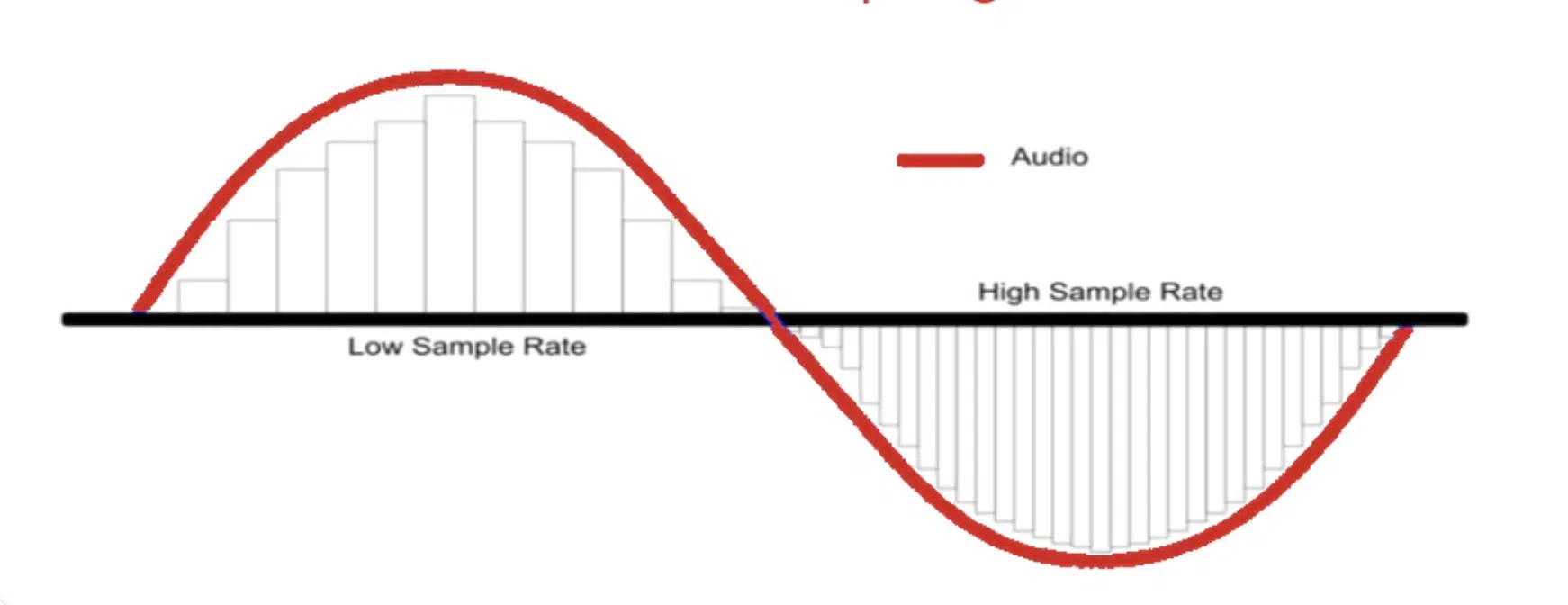When it comes to digital audio, the sample rate plays a crucial role in determining the quality of the audio output. Understanding the significance of sample rate is essential for anyone working with digital audio, whether it’s music production, sound engineering, or any other audio-related field. In this article, we will explore the importance of sample rate, the factors that influence the choice of the best sample rate, and how to determine the optimal sample rate for your specific needs.

Credit: unison.audio
What is Sample Rate?
Sample rate refers to the number of samples of audio carried per second. It is measured in hertz (Hz), and higher sample rates result in higher sound quality. Essentially, the sample rate determines the frequency at which the audio is sampled, which in turn affects the fidelity and accuracy of the digital representation of the original analog sound.
Common sample rates include 44.1 kHz, 48 kHz, 88.2 kHz, 96 kHz, and higher. The standard sample rate for audio CDs is 44.1 kHz, while higher rates such as 48 kHz, 88.2 kHz, and 96 kHz are often used in professional audio production and high-definition audio formats.

Credit: www.amazon.com
The Importance of Choosing the Best Sample Rate
Choosing the best sample rate is crucial for ensuring high-quality audio reproduction. The sample rate directly affects the frequency range that can be accurately reproduced, as well as the level of detail and clarity in the audio. A higher sample rate allows for a wider frequency response and more accurate representation of the original sound, resulting in a more natural and authentic listening experience.
Factors Influencing The Choice Of Sample Rate
When determining the best sample rate for a particular audio project, several factors must be taken into consideration:
| Factor | Consideration |
|---|---|
| Audio Source | The quality and frequency range of the original audio source. |
| Playback System | The capabilities of the playback system or device. |
| Storage and Bandwidth | The impact of higher sample rates on file size and data transfer requirements. |
| Production Requirements | The specific needs of the audio production or project, such as compatibility with other equipment or industry standards. |
Determining the Optimal Sample Rate
To determine the optimal sample rate for a given audio project, it is essential to consider the intended use of the audio, the capabilities of the playback system, and the desired balance between audio quality and practical considerations such as file size and storage requirements. In general, higher sample rates are preferred for professional audio production and high-fidelity audio playback, while lower sample rates may be sufficient for certain applications where file size and data transfer are significant concerns.
Choosing The Best Sample Rate For Different Applications
For various audio applications, different sample rates may be more suitable:
- Music Production and Mastering: In professional music production and mastering, higher sample rates such as 88.2 kHz or 96 kHz are often preferred to capture the full range of musical frequencies and nuances.
- High-Fidelity Audio Playback: For audiophile-grade audio playback systems, higher sample rates can provide a more immersive and detailed listening experience.
- Streaming and Online Distribution: When considering online distribution or streaming platforms, the balance between audio quality and efficient data streaming must be taken into account, making 44.1 kHz or 48 kHz common choices.
- Voice Recording and Podcasting: For speech-focused content, lower sample rates such as 32 kHz or 44.1 kHz may be sufficient while conserving storage space and bandwidth.
Frequently Asked Questions On Best Sample Rate : Unlocking The Power Of Exceptional Audio Quality
What Is The Best Sample Rate For Audio Recording?
The ideal sample rate for audio recording is 44. 1 kHz, commonly used in the industry.
Why Is Choosing The Right Sample Rate Important?
Selecting the correct sample rate is crucial to maintain high audio quality and minimize loss.
How Does Sample Rate Affect Audio Quality?
Higher sample rates capture more detail and result in better audio fidelity and clarity.
What Happens If The Sample Rate Is Too Low?
A low sample rate can lead to loss of audio quality, producing a less detailed sound.
Conclusion
The sample rate is a critical factor in digital audio, influencing the fidelity, accuracy, and overall quality of the audio output. By understanding the importance of sample rate and considering the influencing factors, you can make informed decisions about choosing the best sample rate for your specific audio needs. Whether it’s music production, audio mastering, streaming, or speech-focused content creation, the right sample rate plays a crucial role in delivering the best possible audio experience.